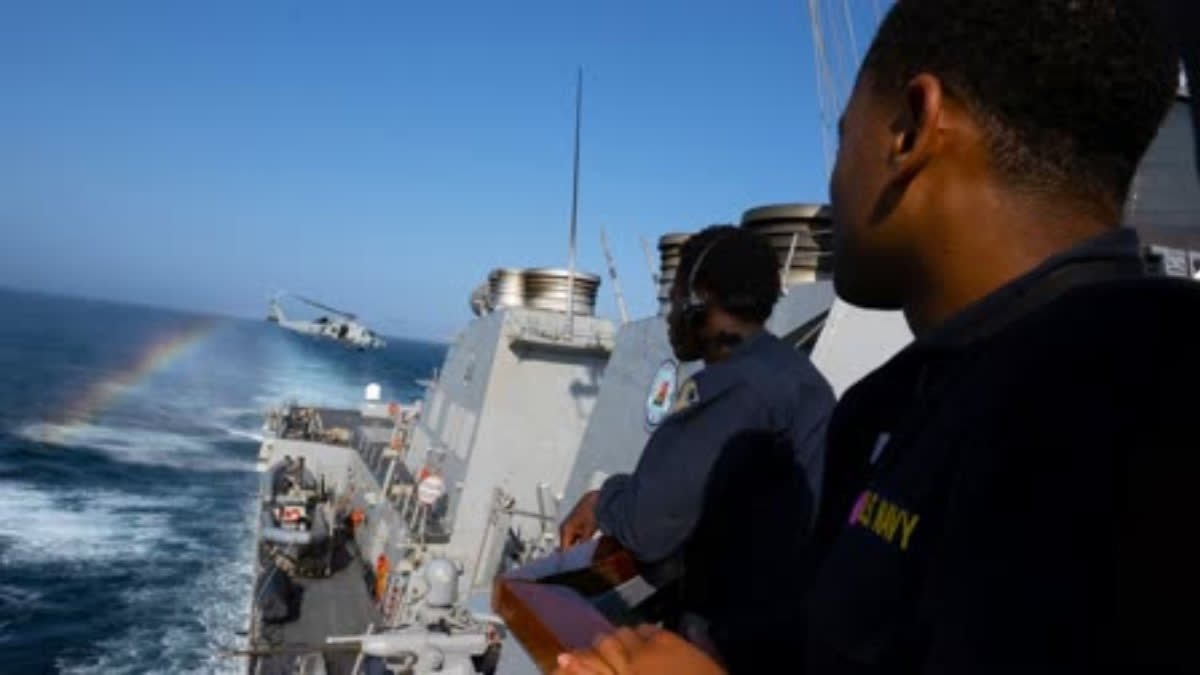New Delhi: The increasing Red Sea crisis may impact trade as it is expected to push shipping costs by up to 60 per cent and insurance premium by 20 per cent, a report by economic think tank GTRI said on Saturday. This conflict could also result in increased shipping costs (40-60 per cent) and delays due to rerouting (up to 20 days more), higher insurance premiums (15-20 per cent), and potential cargo loss from piracy and attacks.
The situation around the Bab-el-Mandeb Strait, a crucial shipping route connecting the Red Sea and the Mediterranean Sea to the Indian Ocean, has escalated due to recent attacks by Yemen-based Houthi militants. Due to these attacks, the shippers are taking consignments through the Cape of Good Hope, resulting in delays of about 20 days.
The Houthi conflict's disruption of the Red Sea shipping lanes significantly impacts Indian trade, especially with the Middle East, Africa, and Europe, the Global Trade Research Initiative (GTRI) said. It said that India, heavily reliant on the Bab-el-Mandeb Strait for crude oil and LNG imports and trade with key regions, faces substantial economic and security risks from any disruption in this area.
For overall merchandise trade with Europe and North Africa, about 50 per cent of imports and 60 per cent of exports, totaling USD 113 billion, might have used this route, it said. It added that the conflict has necessitated India to consider alternative routes, such as the longer Cape of Good Hope, which could lead to increased energy costs.
India might look to diversify its sources of crude oil and LNG, and explore alternative trade routes to reduce dependency on the conflict-prone Red Sea passage, it said. "This conflict could also result in increased shipping costs (40-60 per cent) and delays due to rerouting (up to 20 days more), higher insurance premiums (15-20 per cent), and potential cargo loss from piracy and attacks," it said.
While India is implementing measures to ensure the safety of its ships in the Red Sea, the effectiveness may be limited as most Indian cargo is carried by global shipping firms, the report added. "India must brace for an extended period of shipping disruptions in the Bab-el-Mandeb Strait. This requires a strategic blend of diplomatic, economic, and humanitarian measures to safeguard its interests. The situation demands a nuanced approach, balancing immediate needs with long-term geopolitical and economic considerations," GTRI Co-Founder Ajay Srivastava said.
He suggested steps such as diversifying crude oil imports from regions like West Africa, the Americas, and the mediterranean; relying on ports outside conflict zones, like Oman and Djibouti, for transshipment and regional trade; and offering financial support and insurance schemes to Indian companies affected by trade disruptions.
Read more



